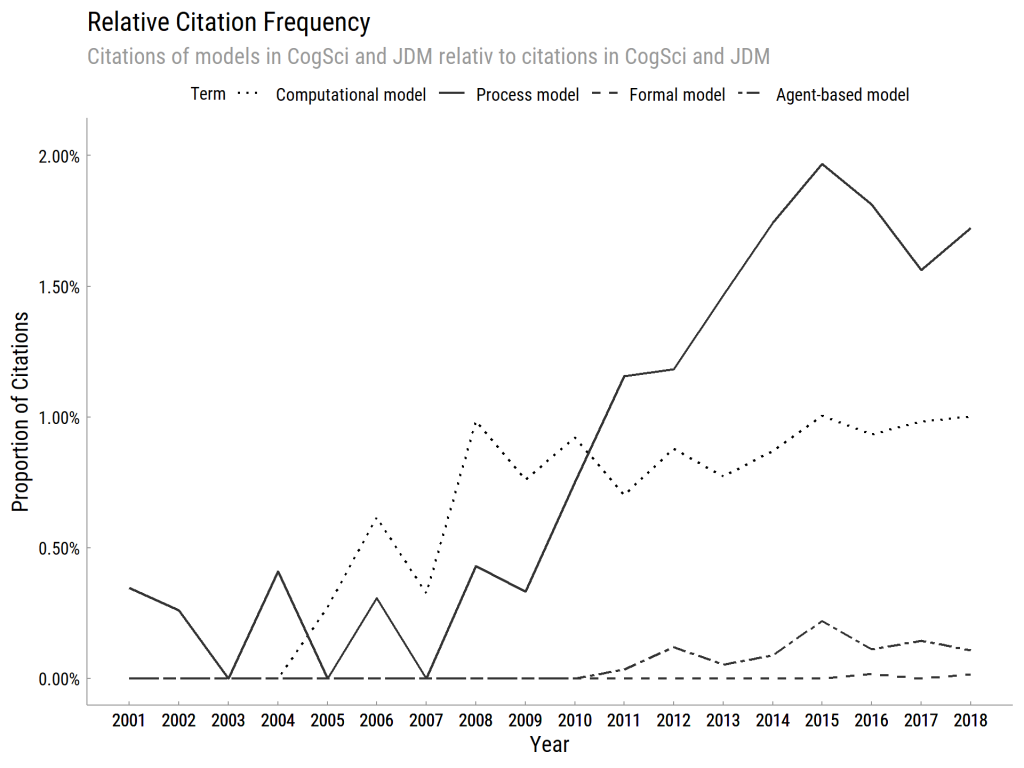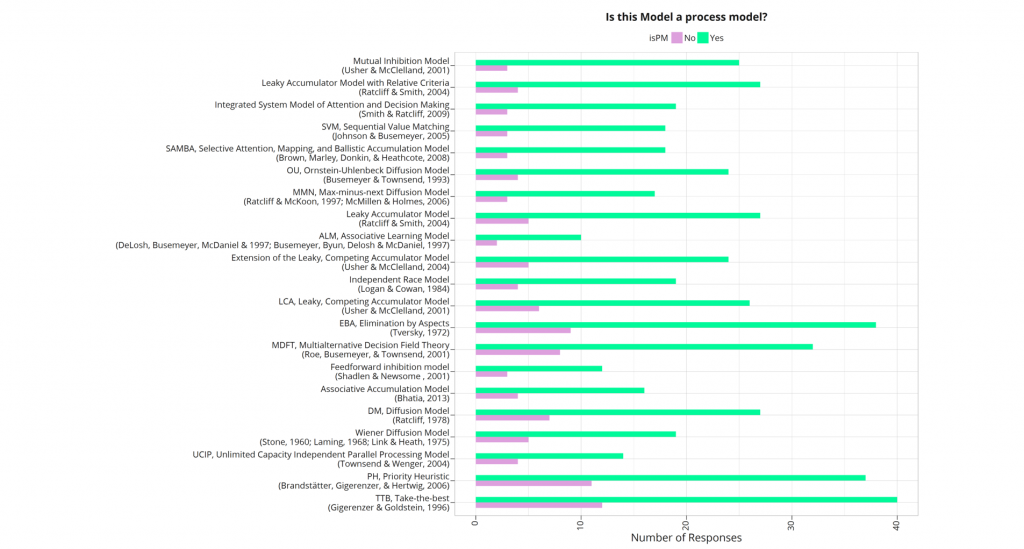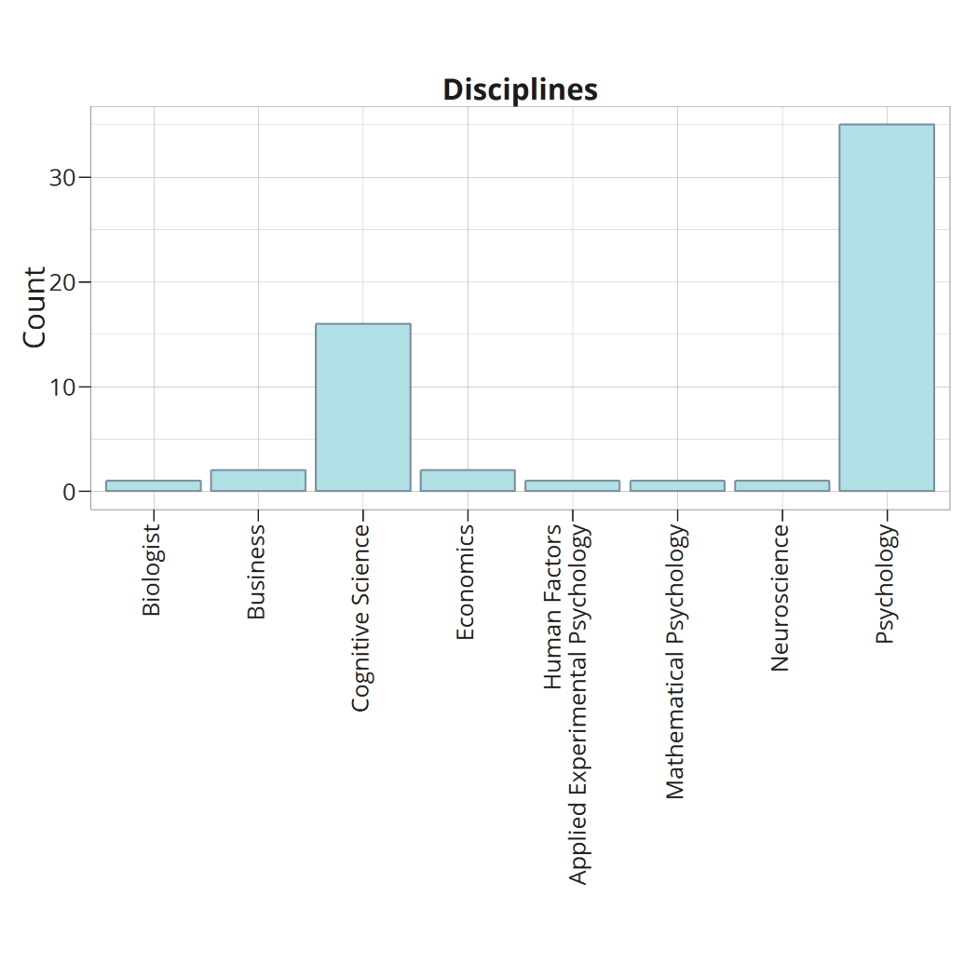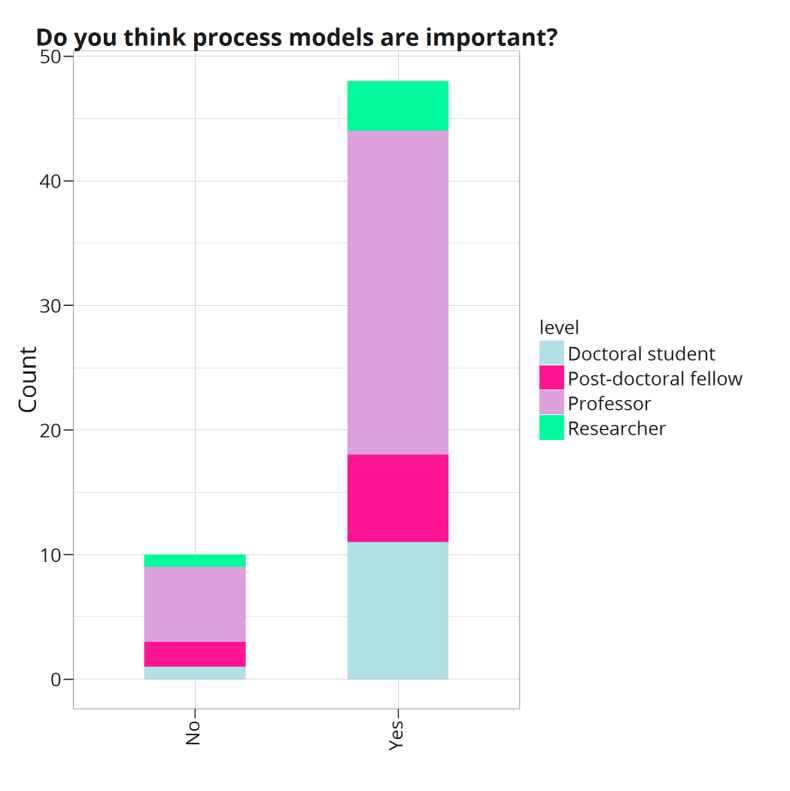Topic
Modeling
Process models of mental capacities have become a common tool in cognitive science
Setup
MPI
Part of the Max Planck Institute’s research program Adaptive Behavior and Cognition.
Design
R
Realized in R-Statistics
A Framework for Building Cognitive Process Models
A step-by-step instruction for cognitive process model building.
Cognitive models have become increasingly prominent in recent years. Despite their prominence, practitioners and academics are not in agreement about which types of models are suitable to model thought processes. We wrote an essay to resolve this issue, proposing a five-dimensional characterization of process models.
You can read the scientific paper in the Psychonomic Bulletin & Review.










